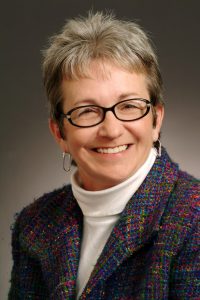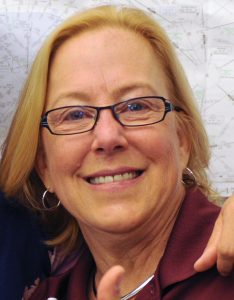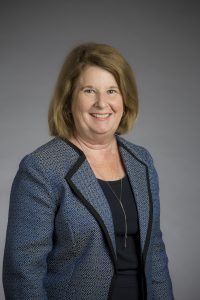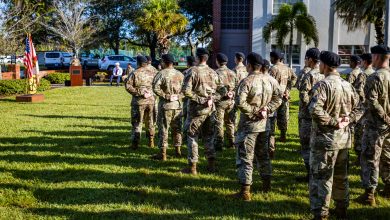Faculty Emeriti: A Different Kind of ‘Alumni’
Panthers through and through, retired faculty members maintain strong ties with Florida Tech while pursuing new adventures.
What does it mean to be faculty emeritus for a university? The answers vary.
For some, it’s a means to stay academically active, doing things that benefit the world, as they have done their whole careers, but also doing things that, of course, benefit the university.
Florida Tech’s emeritus faculty stay connected to the university through the Emeriti Officers organization. Among others, benefits include library privileges for personal and professional use, retaining a Florida Tech email address and admission to regular faculty events.
As much as they did, and continue to, enrich the university, Florida Tech’s faculty emeriti also enrich the communities around them.
Carrying the Message

Michael Grace joined Florida Tech as an assistant professor in the biological sciences department in fall 1999. Rising through the ranks and, eventually, becoming a full professor, he built and ran the university’s behavioral neuroscience research lab and taught several classes. Studying the neurobiology of vertebrate animals as it underlies complex behavior, Grace’s focus was sensory biology related to vision.
Some of Grace’s studies involved snakes, including pit vipers and pythons. They garnered international attention through numerous appearances on National Geographic television, the Discovery Channel and other outlets. His research team studied the mechanisms in a snake’s infrared imaging system with the goal of building better artificial infrared detectors. He also studied tarpon and whales, aiming to understand how they perceive their environments and trying to help their conservation.
“We discovered that when tarpon begin life with only one kind of light detector, they are colorblind,” Grace says. “But our research showed that by the time they’re adults, they have five distinct color detectors— completely unheard of in the animal world. We believe that this gives them extraordinary color vision with about 10,000 times greater color discrimination capability than we have.”
In 2010, Grace also began to work in the administration, ultimately becoming a senior associate dean of engineering and science. Grace would remain in the administration until he retired in 2019.
“Ultimately, my retirement was about a new chapter in life—getting back to some other things that I really enjoyed,” he says. “My son had graduated high school, and he had moved up to MIT. So, it was just time. My wife and I talked a lot about it. Deciding to step back from Florida Tech was one of the hardest things I’ve ever done. People often use this phrase loosely, but it truly was with a heavy heart. I had so many great friends and colleagues, and I had watched the university change in so many ways—in so many great ways over the course of the time that I was a full-time faculty member.”
Grace still maintains a presence in academia. In July 2022, the journal Behavioral Brain Research published his work on the snake infrared imaging system. He also has been teaching an online introductory biology class for about two years.
However, it’s his work outside of the classroom that has taken him back to his outdoor roots. A very active Boy Scout growing up, Grace is on the board of directors of the regional Scouting organization and does a lot of work with Order of the Arrow, the Scouting honor society, as well as other outdoor programs.
Grace also collects and restores antique small boats, a passion grown out of Scouting. President of the international Wooden Canoe Heritage Association, Grace has nearly 100 very historic boats from around 1870 through the 1930s.
“I’ve always enjoyed the outdoors, and canoes are a great means of transportation in the natural world, quiet,” he says. “Plus, you can get into very remote places and see aspects of nature that powerboats prevent.”
While providing a legitimate academic affiliation that is important for staying active in the field is a valuable part of his faculty emeritus status, he says, Grace believes the title comes with a more important responsibility: serving as an ambassador for Florida Tech.
“We carry the Florida Tech message everywhere we go,” he says. “Of course, there’s a lot of history. Many of our emeriti were at Florida Tech for decades before retiring—20 years, 30 years or more—and there’s a lot of institutional knowledge; there’s a lot of history built into that. Good, happy, committed emeriti are great for Florida Tech because we do many things that reflect upon our university. We serve on boards; we are active in the community; and we remain active in scholarship. In all these things, we represent Florida Tech and, hopefully, we all represent Florida Tech very well.”
Good, happy, committed emeriti are great for Florida Tech because we do many things that reflect upon our university. We serve on boards; we are active in the community; and we remain active in scholarship.”
Michael Grace
Power of Community

Mary Bonhomme has a history of leadership during her time at Florida Tech.
As associate provost, online learning, and university professor and dean, she was responsible for the administration and launch of Florida Tech’s partnership with Bisk Education Inc. to provide both undergraduate and graduate degree programs. She also shepherded the programs through the respective curriculum committees to obtain faculty approval of the degrees. Bonhomme is also a past Emeriti Officers president.
As an emeritus faculty member, Bonhomme still works with the university’s chapter of Phi Kappa Phi honor society. She works with LEAD Brevard, an organization founded to enhance participation from community leadership in the county. Bonhomme worked with the Eau Gallie Rotary Club to install a peace pole as part of the international Peace Pole Project. Along with Friends of the Eau Gallie Library, she was part of the installation of a literary landmark honoring Zora Neale Hurston, a legendary author who lived in Eatonville, Florida. Bonhomme also teaches online graduate courses for the learning design and technology program at Purdue University.
For Bonhomme, being an emeritus faculty member is a way to stay linked to the university.
“The opportunity to stay connected with the university and other retired faculty, those connections help ensure lifelong learning for me—something I’ve always believed in and promoted,” she says.
Bonhomme tries to promote the university.
“On our current European river cruise, there was a passenger on the ship wearing a Florida Tech Panther T-shirt, so I inquired and found out her son goes to Florida Tech and is a freshman in mechanical engineering,” Bonhomme says. “I made sure he was doing OK.”
When thinking back on memories she made at the university, Bonhomme remembers a Phi Kappa Phi initiation ceremony, during which a service member stationed overseas asked if his wife and daughters could attend on his behalf. Bonhomme said “yes,” and the service member’s wife traveled to Melbourne from Georgia. When it came time to accept his certificate, she and her daughters walked across the stage.
Bonhomme also fondly remembers the bonds formed among the students.
“Seeing all the online students who come to the graduation reception meet each other in person for the first time and the closeness they had developed through their studies showed the real power of community in online learning,” she says.
The opportunity to stay connected with the university and other retired faculty, those connections help ensure lifelong learning for me—something I’ve always believed in and promoted.”
Mary Bonhomme
Lasting Memories

As a professor in the College of Aeronautics, Donna Wilt served as chair of the flight education program, associate dean, faculty senate president, flight team advisor and Women in Aviation advisor.
Wilt is still involved in general aviation and various organizations.
A few years ago, she set up a nonprofit, Pelican Flying Club Inc., to provide safe, fun, affordable flying. She serves as club treasurer and maintenance officer and generally runs the club, a labor of love to pay it forward, like those who helped her when she was younger, she says.
“I especially like being able to provide pilots, those working toward being a professional pilot, a way to get their experience while enjoying the benefits of general aviation in a well-maintained aircraft at an affordable price,” she says.
She also works with Experimental Aircraft Association Chapter 1288 in Valkaria, Florida, as well as The Ninety-Nines, an international organization of licensed female pilots.
Being an emeritus faculty member means remaining connected to the university for Wilt.
“It means still being family, like an alumnus,” she says. “It’s recognition for an important part of my life, a body of work and accomplishments over a career well lived.”
Florida Tech continues to be a presence in Wilt’s life, in part through her research with current Florida Tech faculty.
Wilt is collaborating with College of Aeronautics professor Meredith Carroll on a book chapter about human-computer interface in general aviation, and she is serving periodically as a subject matter expert and research collaborator with Carroll’s ATLAS (Advancing Technology-Interaction and Learning in Aviation Systems) Lab. Wilt also attends lectures and social activities on campus and in the College of Aeronautics.
She volunteers for the National Intercollegiate Flying Association (NIFA), recently serving as a judge at NIFA’s Safety and Flight Evaluation Conference (SAFECON) Region IX competition, where Florida Tech’s flight team competed. Attending the conference as a judge was different from going as a faculty advisor, Wilt says, but she recognizes that these events depend on volunteer judges.
Past trips to the conference have allowed for some lasting memories.
One year, the team flew to Selina, Kansas, for the National SAFECON competition with three Florida Tech planes plus Wilt’s personal Cessna. The first transcontinental flight as pilot for the students included a layover in Memphis, Tennessee, where they visited the famous Beale Street and indulged in its signature Memphis barbecue. Departing the next day, one aircraft had an instrument failure and returned to the airport. Waiting in Memphis for parts and repair would have caused those in the aircraft to miss a large part of the competition.
“The instrument repair facility turned out to be at Fort Smith airport on the way to Selina, so the pilot crew replanned their flight to fly to Fort Smith and waited while the instrument was repaired,” Wilt says. “After another layover in Fort Smith, the flight was on its way and arrived at Selina just in time to make the opening ceremony.”
It means still being family, like an alumnus. It’s recognition for an important part of my life, a body of work and accomplishments over a career well lived.”
Donna Wilt
A Meaningful Experience

For 17 years as dean and professor at Florida Tech’s College of Psychology and Liberal Arts, Mary Beth Kenkel enjoyed a career enhancing individual lives and the broader community through educational programs, research and services.
“My fondest memories are of graduation days,” Kenkel says. “I was always so thrilled by seeing the pride and joy on graduates’ faces as they came on stage to get their degrees. To know that I played some small part in preparing them for future filled with promise gave me great satisfaction and joy.”
As an emeritus faculty member, she continues to live an enriched life.
Kenkel remains involved professionally through her work with the International Council of Psychologists, which is committed to promoting human rights, justice and world peace. Kenkel also continues to work as a reviewer for several psychology journals, keeping her up to date on the latest research and thinking about how psychology can be applied to address societal problems.
Kenkel has gotten very involved politically, doing voter registration and canvassing in the county in support of candidates and issues she supports.
“In doing so, I feel like I am doing something to address the pressing problems our country has been experiencing, rather than just complaining or being discouraged,” she says.
Travel is also important to Kenkel, who has explored the U.S. through several long road trips and has had great fun and adventures doing so. She and her husband, Larry, are planning a visit to Croatia and Slovenia in March.
Florida Tech continues to be a part of Kenkel’s life, as she keeps tabs on the university and its new programs and research through contact with past colleagues and students.
Being an emeritus faculty member is part of who she is, Kenkel says.
“It means that I will always consider Florida Tech as an important and meaningful part of my life and professional identity,” she says. “Like cities you have lived in for a long time and then moved away from, they leave an important imprint in your life, and you know they had a significant role in making who you are.”
I will always consider Florida Tech as an important and meaningful part of my life and professional identity.”
Mary Beth Kenkel
Like an Alma Mater

Muzaffar Shaikh’s teaching philosophy has four key dimensions: It is a lifelong phenomenon; it should be participative; it should entail an effective utilization of class time; and there should be proper feedback from both the teacher and the student.
In his time as a faculty member for Florida Tech, where he worked in the Nathan M. Bisk College of Business and later, the College of Engineering and Science from 1985 to 2018, Shaikh applied similar principles, serving, participating, utilizing his time and showing clear communication.
Throughout his career, he served as head of the engineering systems department, associate provost for industry partnerships and associate vice president for international partnerships, while teaching students.
Shaikh has seen the university change, not only from its physical appearance, but within the organization itself.
“Florida Tech has evolved tremendously over the years in terms of ranking and infrastructure change, academic area change,” he says. “That also brought more faculty members, more staff members and so on.”
Shaikh remembers being in the classroom and watching the faces of his students learning. Considering himself a teacher at heart, Shaikh felt most comfortable in the classroom. His passion for teaching was also rewarded, winning four teaching excellence awards: two from the College of Business, one from the College of Engineering and Science and one university honor.
Shaikh works in the industry as a consultant, something he had done throughout his Florida Tech career, as well. Working with international companies, he develops digital twin technology courses for employees.
Shaikh also works with the Patrick Space Force Base Defense Equal Opportunity Management Institute (DEOMI) to train new employees or cadets in diversity. As one of the panelists on Islam, he speaks with various community organizations about his faith.
Being an emeritus faculty member means a lot to Shaikh, and he is taking that passion to the next level as president-elect for the Emeriti Officers. He appreciates both the continued attachment to the university, as well as the recognition he and other senior faculty receive for their service throughout the years.
“Because it is a sense of belonging. It’s a sense of continued connection to, I should say, my alma mater,” he says. “Florida Tech is not my alma mater, but I consider it that way since I served so many years. So, the continuing information that Florida Tech is doing well, excelling in areas, gives me a sense of satisfaction.”
It is a sense of belonging … a sense of continued connection … Florida Tech is not my alma mater, but I consider it that way since I served so many years.”
Muzaffar Shaikh
This piece was featured in the winter 2023 edition of Florida Tech Magazine.






